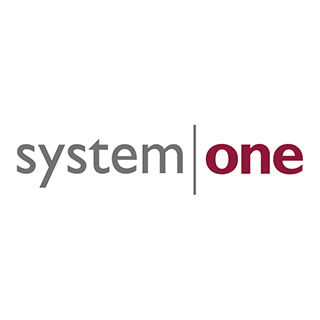
Functional Containment and Radionuclide Transport Engineer from System One
Bellevue, WA
About the Job
System One is seeking a Function Containment and Radionuclide Transport Engineer for a remote work model. long-term contract opportunity, with our client, based out of Bellevue, WA.
The Functional Containment and Radionuclide Transport Engineer is responsible for performing radionuclide transport calculations within systems and buildings to support effluent releases and to develop mechanistic source terms for postulated accidents (equivalent to Level-2 PRA). They will work directly with other nuclear safety and licensing staff to ensure technical and regulatory requirements for nuclear safety and worker protection are met. Other engineering activities include, but are not limited to, contributing to the development of computational methodologies and models, contributing to software commercial grade dedication, participating in hazard analysis, participating to Phenomena Identification and Ranking Table (PIRT) exercises, participating to Structures, Systems and Components (SSC) classification, developing analytical methods, performing analysis of functional containment and radionuclide transport as well as verification and validation activities.
Responsibilities
The Functional Containment and Radionuclide Transport Engineer is responsible for performing radionuclide transport calculations within systems and buildings to support effluent releases and to develop mechanistic source terms for postulated accidents (equivalent to Level-2 PRA). They will work directly with other nuclear safety and licensing staff to ensure technical and regulatory requirements for nuclear safety and worker protection are met. Other engineering activities include, but are not limited to, contributing to the development of computational methodologies and models, contributing to software commercial grade dedication, participating in hazard analysis, participating to Phenomena Identification and Ranking Table (PIRT) exercises, participating to Structures, Systems and Components (SSC) classification, developing analytical methods, performing analysis of functional containment and radionuclide transport as well as verification and validation activities.
Responsibilities
- Develops analytical models for quantification of radiological source terms in the gaseous and liquid effluents during normal operation and anticipated operational occurrences
- Develops analytical models for ex-core radionuclide sources such as radwaste systems, spent fuel, and auxiliary purification systems.
- Supports the development of mechanistic (accident) source term methods for postulated accidents
- Develop analytical models for containment performance including mass and energy release and subsequent leak rates.
- Provide inputs to radiological consequence models
- Perform technical work to support regulatory submittals and NRC interactions
- Support establishment of overall functional containment strategy to meet risk-informed performance-based effluent and accidental releases including development of Specified Acceptable Radionuclide Release Design Limits.
- Work with an interdisciplinary team of engineers to establish functional, reliability, performance, safety, and quality requirements for SSC that support the radionuclide containment function as well as support the overall design
- Establish and maintain documentation of model development and analysis results.
- Perform engineering reviews of analyses and other engineering design media.
- May support analysis and recommend design solutions for worker radiological protection including control room habitability
- May perform radiological dose assessments to support the ALARA program
Key Qualifications and Skills
- Experience with performing containment analysis and radionuclide transport assessments using codes such as GOTHIC, RADTRAD, MELCOR, SRT or similar tools is required.
- Familiarity with functional containment approach is a plus.
- Familiarity with nuclear design, regulatory requirements, and risk-informed performance-based technology guidance for Non-Light Water Reactors is required.
- Knowledgeable of PRA principles and familiar with the ASME/ANS Non-Light Water PRA standard a plus
- Experience with SFR safety analysis is highly desirable. Experience with other reactor designs can be considered when differentiating candidates.
- Demonstrated strong quantitative, analytical, modeling and reporting skills.
- Understanding of NQA-1 requirements associated with analysis and software management as well as experience working under a quality assurance programs.
- Experience in working in multi-disciplinary engineering teams to address engineering challenges.
- Strong software engineering skills in any language is a plus.
- The successful candidate will possess a high degree of trust and integrity, communicate openly and display respect and a desire to foster teamwork.
